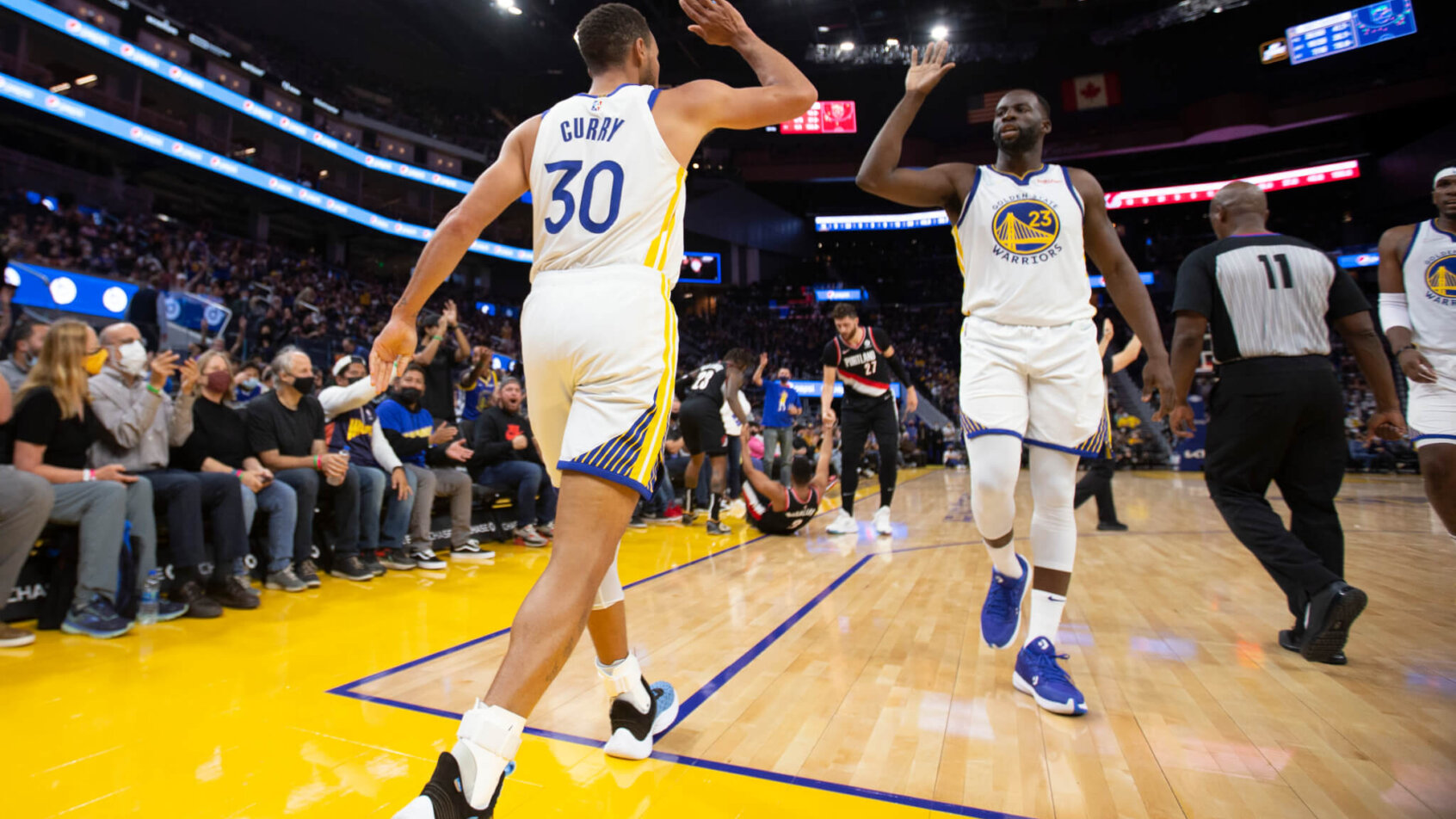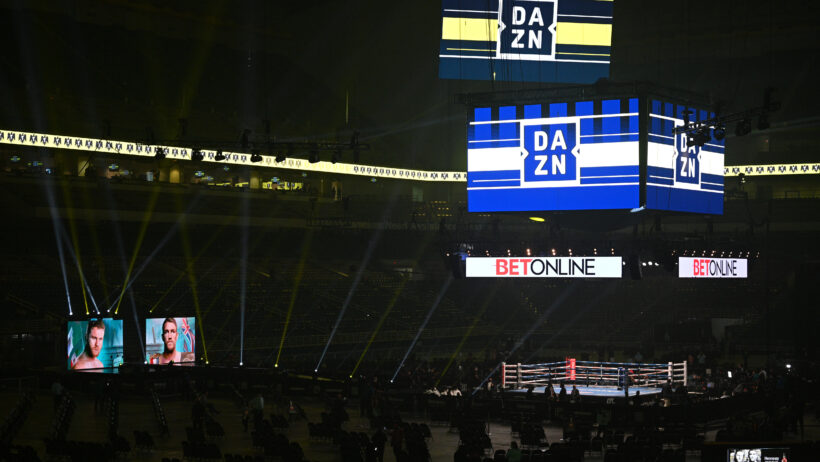Voters Will Have Several Options to Legalize California Sports Betting in November
By Robert Linnehan in Sports Betting News
Published:

- Several California sports betting campaigns are making a last push to gather signatures
- It’s expected that at least two California sports betting referendum questions will be on the November ballot
- California Tribes and online sports betting operators are at odds over the state’s sports betting future
California tribes, California card rooms, and national online sports betting operators are all engaged in a power struggle to position themselves for an advantageous piece of the potentially massive California sports betting market that could be legalized this November.
California voters will likely have at least two sports betting referendum questions to ponder on the November general elections ballots, with a third that may be approved for the ballot in the next few months. California sports betting will become a reality for the state if any, or all, of the referendum questions are approved by voters in the election.
Only one initiative, a tribal-led referendum question to legalize retail sports betting at tribal casinos and state racetracks, has procured the necessary signatures to appeal on the 2022 ballot. If approved, the initiative would also legalize dice games and roulette at tribal casinos.
Online Sportsbook Operators Making Their Push
However, it is widely expected that a second initiative, one to legalize online sports betting in California for both national online sports betting operators and California tribes, will procure the necessary verified signatures to appear on the November ballot.
Backed by DraftKings, BetMGM, FanDuel, Fanatics Betting and Gaming, Bally’s Interactive, WynnBET, and Penn National Gaming (Barstool Sportsbook) through a $100 million contribution, the “California Solutions to Homelessness and Mental Health Support Act,” has until May to submit 997,139 verified signatures to gain a spot on the general election ballot.
Campaign spokesperson Nathan Click told Sports Betting Dime the signature collectors continue to find strong support for the measure.
“Signatures are looking good. We are in strong position and continue to be well over our week to week goals. Clock runs out on collection at the beginning of May,” Click said.
If approved by voters in November, the act would allow qualified sportsbook operators to partner with California Tribal Nations to operate online sports betting in the state.
The initiative allocates 85% of sports betting revenue to the California Solutions to Homelessness and Mental Health Support Account, which will help combat homelessness and mental health issues in the state. The additional 15% of revenue will be allocated to the Tribal Economic Development Account, which will provide economic development and assistance to tribes in the state who do not participate in the online sports betting program. There are 104 federally recognized tribes in California.
Tribal Opposition to Outside Sports Betting Operators
California Tribal representatives are firmly opposed to the online sportsbook backed initiative, preferring to keep the future of retail and online sports betting in the hands of California tribes. Kathy Fairbanks, spokeswoman for the Coalition for Safe, Responsible Gaming, sponsored by California Indian Gaming Tribes, said the coalition is working under the assumption that the online sports betting operator referendum will gain the necessary signatures to be on the November ballot.
The Coalition for Safe, Responsible Gaming represents 43 California tribes and is the driving force behind the Tribal Sports Wagering Act, the only approved sports betting initiative for the November ballot so far. The initiative seeks to legalize retail sports betting at tribal casinos and state casinos, while keeping sports betting under the umbrella of tribal control.
A second tribal ballot measure, sponsored by the San Manuel Band of Mission Indians, Wilton Rancheria, and Rincon Band of Luiseno Indians, is currently collecting signatures to legalize online and retail sports betting for California tribes only. The ballot measure eclipsed the 25% signature threshold in March and has until July to gather the remaining necessary signatures.
I received two very different California sports betting press releases about half an hour from each other.
I will have a comprehensive update on the California sports betting legalization efforts tomorrow morning.
— RLinnehanXL (@RLinnehanXl) April 18, 2022
It’s expected, however, that it may come up short to appear on the November ballot. Representatives from the campaign could not be reached for comment.
Despite potentially vying against each other for votes in November, Fairbanks said the entire tribal community has banned together against the online sports betting operator campaign.
“The tribal community is 100% unified against the corporate operator measure. It would harm tribes, it would harm the community efforts and job creation that tribes have undertaken in California. The tribes have given back to their communities, they’ve generated tax revenue in California, and the corporate measure undercuts all of that. Tribes are 100% unified against that measure,” she told Sports Betting Dime.
The San Manuel Band of Mission Indians, Wilton Rancheria, and Rincon Band of Luiseno Indians recently formed a committee to campaign against the corporate online sports betting measure, pledging an initial campaign budget of $100 million. It has started running television advertisements throughout the state opposing the measure.
Will Corporate Online Operators Hurt Tribes?
Even with the corporate online sports betting referendum requiring a partnership between a tribe and an online operator to conduct sports betting in the state, Fairbanks said concern lies among the Tribal community that smaller California tribes will be pressured to partner with national online operators.
FanDuel, she said, could potentially partner with a smaller tribe to gain entrance into California and “cut a terrible deal, go on their merry way, and take 90% of their revenue out of state.”
Fairbanks said the corporate measure would also only “pay lip service to the RSTF (Revenue Sharing Trust Fund).” The California Revenue Sharing Trust Fund (RSTF) is a fund that receives an annual payment from the Indian Gaming Special Distribution Fund. The RSTF has a quarterly obligation to pay out $1.1 million to cover 70 California tribes, with the funds being used to improve the quality of life for tribal citizens and facilitate local governance.
The two tribal measures include provisions to ensure that all California tribes will benefit from gaming, Fairbanks said, and the concern with the corporate measure is that it will not fund the RSTF to the fullest extent it should.
“It’s a bad deal for the tribes and a bad deal for California,” she said.
Click denied any truth to Fairbanks’ comments and said the initiative would be beneficial for all California tribes, even those that aren’t participating in the sports betting market.
The initiative earmarks 15% of all sports betting tax revenue for California tribes who do not participate in the sports betting marketplace, he said.
“Based on an independent analysis of the initiative’s impact, the amount generated by this 15% allocation would equal what is currently paid out of the trust fund, essentially doubling the amount of money non-gaming tribes receive from gaming in California. It also requires operators to partner with a California tribe, and tribes also have the ability to set up their own online sports betting platform. Every California tribe will directly benefit from the initiative,” he said.
What About California Card Rooms?
A fourth sports betting initiative, backed by several California mayors, would allow state card rooms and tribal casinos to offer both retail and online sports betting. The initiative would also legalize new card and tile games for both types of facilities. It has not eclipsed the 25% signature threshold and is not expected to have enough signatures to appear on the November ballot.
The initiative’s campaign, Taxpayers Against Special Interest Monopolies, represents more than 80 California cities and locally elected officials. It opposes the qualified tribal gaming initiative under claims that it will give tribes exclusivity over roulette, craps, and sports betting to go along with their current monopoly over slots in the state.
A request for comment from a campaign spokesperson was not returned.
The cardrooms alleged in a recent press release that the change in the state constitution will also allow tribal casinos to hire private trial lawyers and replace the role of the Attorney General to sue non-tribal competitors.
“The California Contract Cities Association overwhelmingly voted to oppose the qualified tribal gaming initiative as it will not benefit our residents or communities. The proposed initiative also exploits the Private Attorneys General Act, opening the floodgates for frivolous lawsuits that will harm city revenues that fund vital city services such as roads, schools, homelessness services and fire protection.” said Marcel Rodarte, Executive Director, California Contract Cities Association, in the release.
Two California card rooms, Hollywood Park Casino and Cal-Pac Rancho Cordova, also filed a lawsuit in Los Angeles Super Court challenging the legality of the Tribal Sports Wagering Act. The lawsuit alleges the referendum question violates California’s constitutional rule that ballot initiatives can involve only a single subject.
A similar lawsuit was filed in late 2021 by the same card rooms and was dismissed by the California Supreme Court in February.
Voters May Favor Legalized California Sports Betting
It’s not clear whether voters will approve sports betting in November, but results of a survey from November showed voters are showing early approval of sports betting in the November general election.
Berkeley IGS Poll, of the Institute of Governmental Studies at University of California, Berkeley, released the results of an online survey of 4,477 California voters. Co-funded by the Los Angeles Times, the results found 45% of respondents approved of legalizing California sports betting, 33% would vote no against any initiatives, and 22% were undecided.

Regulatory Writer and Editor
Rob covers all regulatory developments in online gambling. He specializes in US sports betting news along with casino regulation news as one of the most trusted sources in the country.



